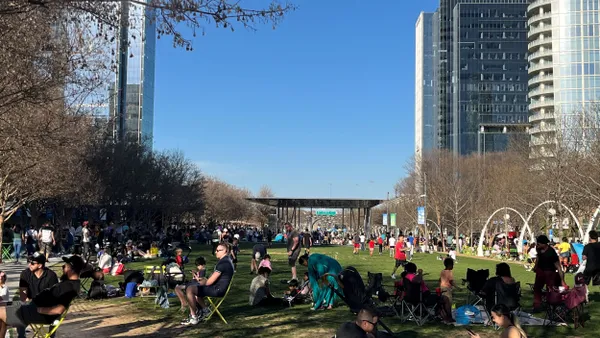Cities may be less likely to approve real estate developers’ rezoning applications when large numbers of residents voice their concerns at public hearings, according to an Urban Institute study released Tuesday.
That can lead to fewer approvals in wealthy neighborhoods than in lower-income neighborhoods, even though developers submit more applications in wealthy neighborhoods, because residents in wealthy neighborhoods are more likely to attend meetings, the study found.
The study, which analyzed rezoning decisions in Louisville, Kentucky, shows that “‘neighborhood defenders’ who are largely homeowners & white use planning processes to block changes to their neighborhoods,” study co-author Yonah Freemark, senior research associate in the Metropolitan Housing and Communities Policy Center at the Urban Institute, wrote on Twitter.
Hearings for rezoning applications that Louisville’s planning commission later approved had many fewer speakers in attendance, on average, than hearings for applications the commission disapproved — about four people versus nearly 13, the study found. In addition, 87% of speakers expressed support for approved proposals compared to just 39% who expressed support for denied proposals.
The findings support earlier research showing that local boards are influenced by vocal members of the community — often called NIMBYs, for “not in my backyard” — who show up to meetings to oppose new construction or zoning that would allow greater housing density. Land-use planning decisions have historically benefited wealthier, Whiter neighborhoods at the expense of lower-income, less White neighborhoods — often with support from the federal government.
Now states and the federal government are trying to curb local land-use restrictions to address the nationwide housing shortage. California is carrying out a review of San Francisco’s housing policies, for example, and a White House plan aims to make it easier for municipalities to get federal grant money if they reform their housing and land-use policies.












